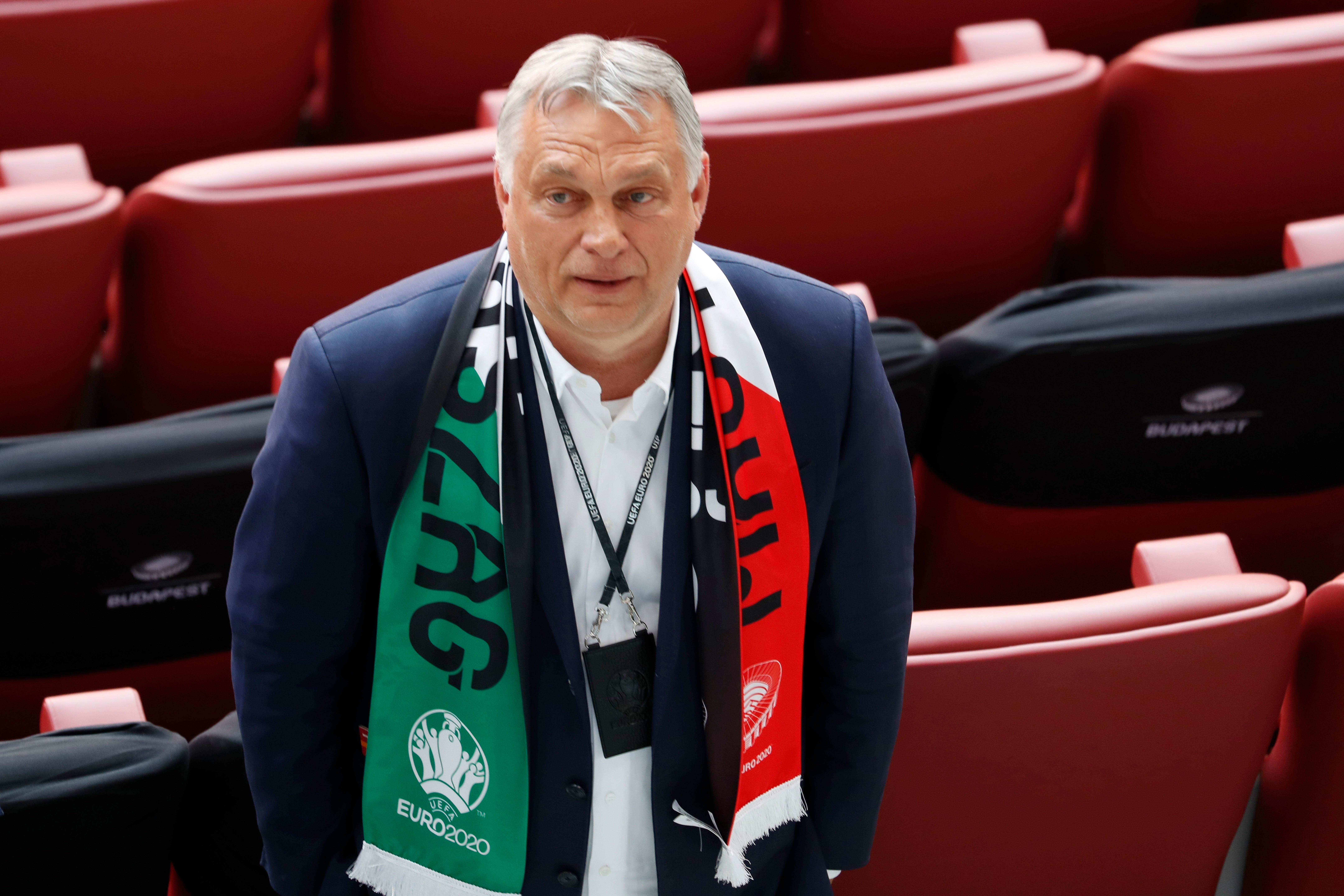More than a game: Orban to miss Hungary match in Germany after LGBT+ row
Populist Hungarian Prime Minister Viktor Orban has long used soccer to advance his right-wing politics

Your support helps us to tell the story
From reproductive rights to climate change to Big Tech, The Independent is on the ground when the story is developing. Whether it's investigating the financials of Elon Musk's pro-Trump PAC or producing our latest documentary, 'The A Word', which shines a light on the American women fighting for reproductive rights, we know how important it is to parse out the facts from the messaging.
At such a critical moment in US history, we need reporters on the ground. Your donation allows us to keep sending journalists to speak to both sides of the story.
The Independent is trusted by Americans across the entire political spectrum. And unlike many other quality news outlets, we choose not to lock Americans out of our reporting and analysis with paywalls. We believe quality journalism should be available to everyone, paid for by those who can afford it.
Your support makes all the difference.Hungary’s football-mad prime minister Viktor Orban will not travel to Munich this evening to watch his country’s vital Euros game against Germany following a row over LGBT+ rights.
Mr Orban was thought to be travelling to Munich for Wednesday evening’s game but the contest has suddenly become more than a game and turned instead into a a symbolic showdown between competing visions for the future of Europe, between progressives and populists.
Instead, reports suggested the Hungarian leader will be in Brussels.
Last week, the Hungarian Parliament approved a controversial bill that bans sharing with minors any content portraying homosexuality or sex reassignment.
Human rights groups and liberal politicians around Europe denounced the law as conflating homosexuality with paedophilia and as a draconian effort to push any representation of LGBT people into the shadows.
Nearly half of the European Union’s 27 member countries issued a statement calling it a “clear breach of (LGBT people’s) fundamental right to dignity,” and officials are examining whether the legislation contravenes EU law.
In a direct rebuke to the law, Munich’s mayor and city council called for its stadium to be lit up with rainbow colours for the international between Germany and Hungary.
But UEFA European soccer’s governing body, denied the request because it considered it a political move, though other stadiums in Germany unaffiliated with the tournament will be allowed such displays and the team captain will wear a rainbow armband.
The ban was applauded by officials in Hungary, but not by the time the row had excaerbated well beyond Hungary and Germany.
Populist Hungarian Prime Minister Viktor Orban has long used soccer to advance his right-wing politics, and now widespread international criticism of a new law seen as targeting the LGBT community has turned this month's European Championship into a major stage for his challenge to Europe's liberal values.
By all accounts a soccer fanatic and a former player himself, Orban has often used the sport as his preferred venue for pushing his political vision and amplifying his image as a man of the people.
Since the days of Hungary great Ferenc Puskas — widely regarded as one of the best players of all time who led “the Mighty Magyars” to the 1954 World Cup final and an Olympic gold medal at the 1952 Helsinki Games — the country has never again achieved world-class status in soccer. But Orban has attempted to rekindle some of the old magic.
In 2007, he founded the Puskas Soccer Academy in his home village of Felcsut, where he had played semi-professionally in the 1990s. His government also introduced a scheme where companies may donate money to sports clubs in lieu of paying corporate tax, an arrangement that since 2010 has netted clubs as much as $2.7 billion — money that critics say would have been better spent on Hungary's ailing health care sector.
The government also directly funds the sport, paying for several of the 32 stadiums that have been built or renovated in Hungary since Orban assumed power, making the structures something of a symbol of state largesse.
This major injection of capital into soccer has made games a popular meeting place for politicians and the politically connected. Orban is often photographed at games with some of Hungary's most successful businessmen, including billionaire Sandor Csanyi, Hungary's second wealthiest person who is also the president of the Hungarian soccer federation and a UEFA vice president.